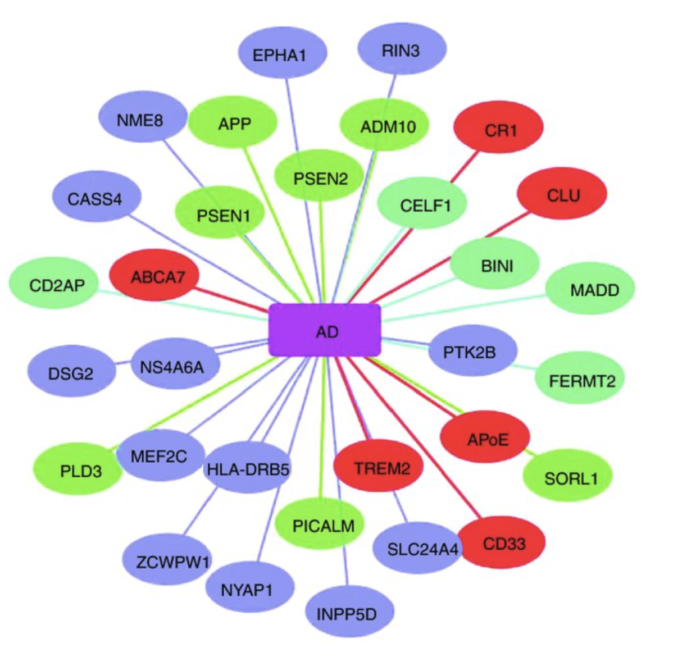In this review, we discuss the genetic etiologies of Alzheimer’s disease (AD). Furthermore, we review genetic links to protein signaling pathways as novel pharmacological targets to treat AD. Moreover, we also discuss the clumps of AD-m ediated genes according to their single nucleotide polymorphism mutations. Rigorous data mining approaches justified the significant role of genes in AD prevalence. Pedigree analysis and twin studies suggest that genetic components are part of the etiology, rather than only being risk factors for AD. The first autosomal dominant mutation in the amyloid precursor protein.
Moustafa, A. A., Hassan, M., Hewedi, D., Garami, J., Alashwal, H., Zaki, N., Seo, S.Y., Cutsuridis, V. , Angulo, S. L., Hewedi, E., Natesh, J. Y. , Herzallah, M. M., Frydecka, D., Misiak, B., Salama. M, Mohamed, W., El Haj, M., Hornbeger, M. (2017). Genetic Underpinnings in Alzheimer’s disease – a review. Reviews in the Neurosciences
Institute of Global Health and Human Ecology, American University in Cairo, Egypt
Dr Mohamed Salama established the first Translational Neuroscience Unit in Egypt. Mohamed’s collaborative research led to establishing the Egyptian Network for Neurodegenerative Disorders (ENND). Mohamed was selected as a SOT Global Senior Scholar in 2013 and Translational/bridging awardee in 2016. He was awarded by Parkinson’s and Movement Disorders Foundation (PMDF) for his continuing research in the field of neurodegeneration.
Recently, Mohamed and his colleagues succeeded to draft the first Reference Egyptian Genome and collaborating with other colleagues to start a national cohort (A Longitudinal Study of Egyptian Health Aging [AL-SEHA]). Currently, Mohamed is Atlantic senior fellow for Equity in brain health at the Global Brain Health Institute (GBHI) and Associate professor at the Institute of Global Health and Human Ecology at the American University in Cairo (AUC).



